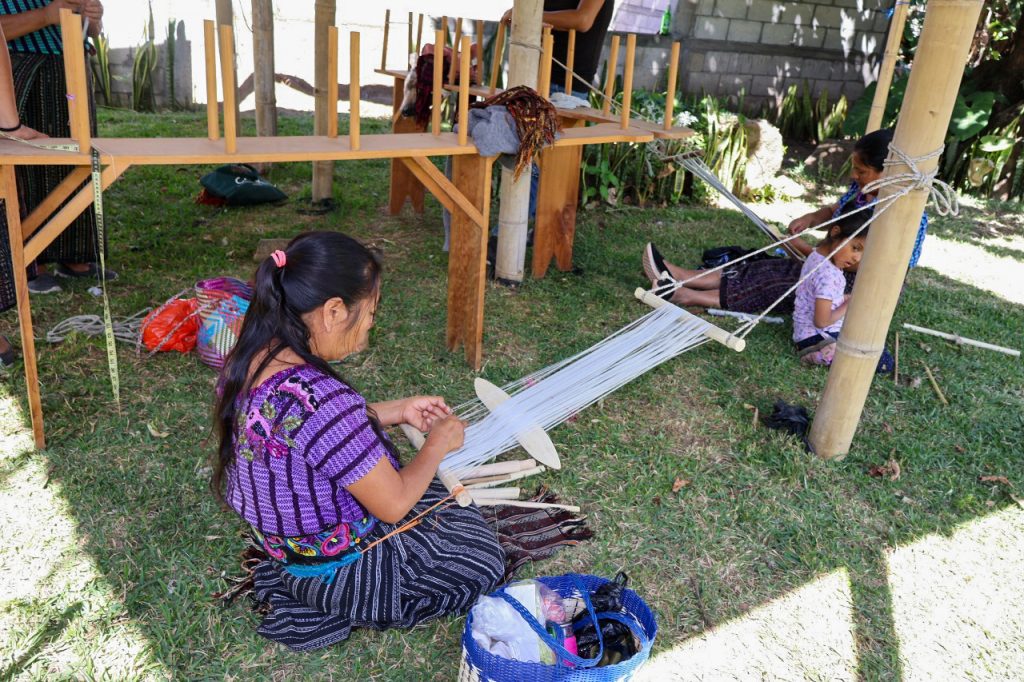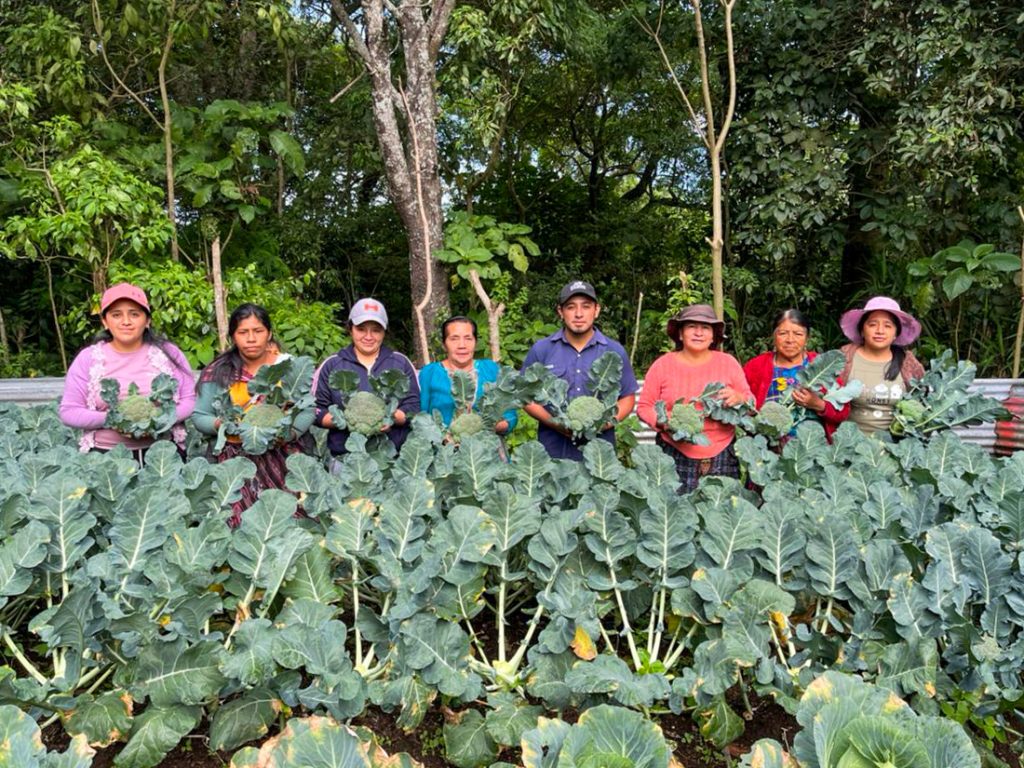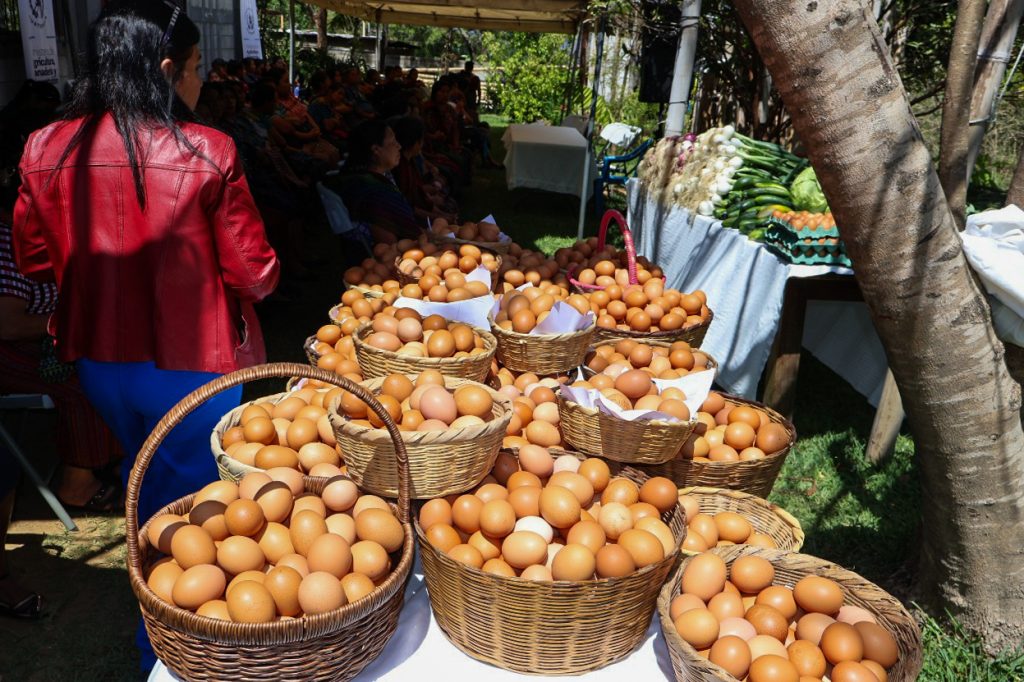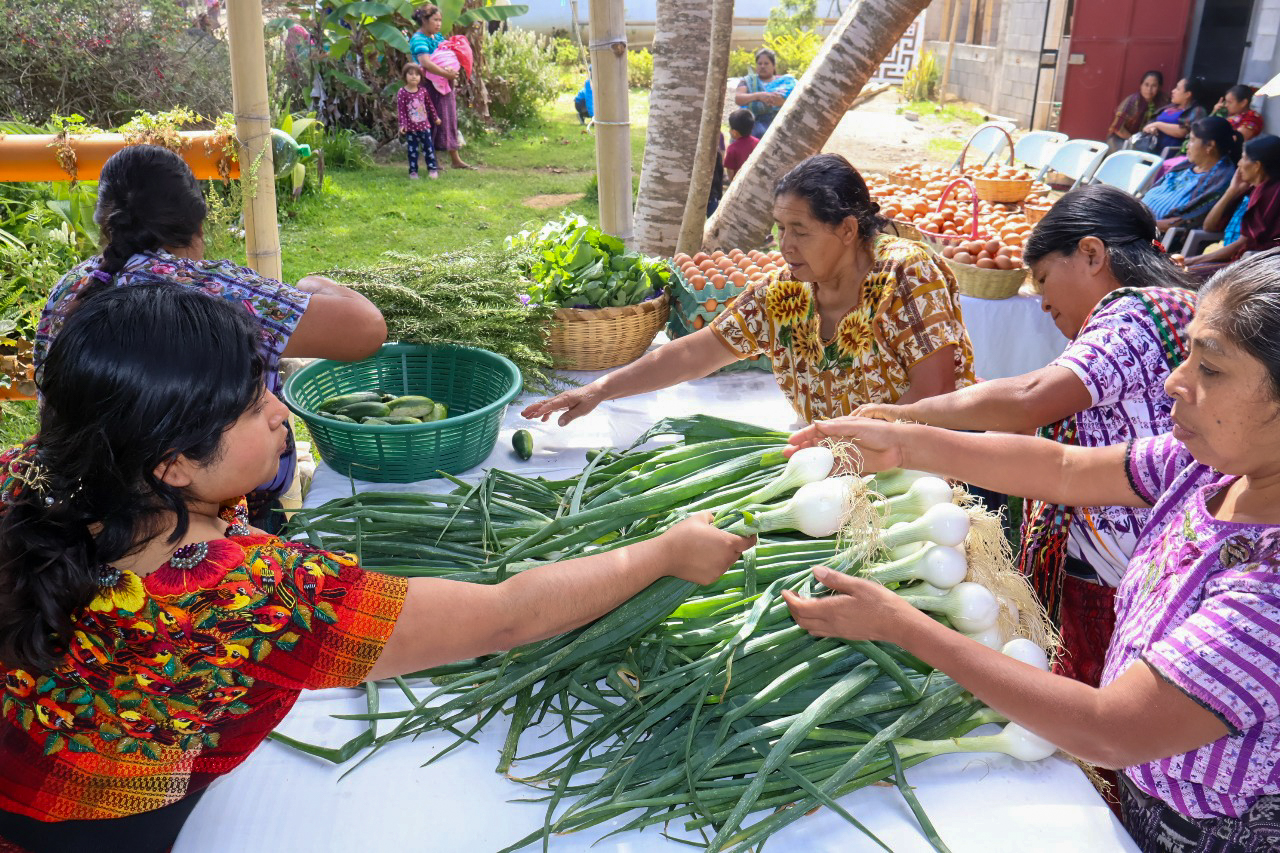In one of the villages surrounding Lake Atitlán, Guatemala, a group of women gathers to weave and embroider. With their hands, they write the stories of the Maya people in a symbolic language of threads and stitches that form birds, flowers, and serpents. Some sit before backstrap looms, creating pieces filled with hundreds of colors. Since ancient times, grandmothers have passed down this language to their daughters, and their daughters to their granddaughters—interlacing knowledge just as they interlace threads to create new works, new stories.
Many of these women also know how to speak with the earth. They know how to open furrows, plant seeds, and witness how, from that simple and sacred act, food and medicine are born. Pericón, lavender, basil, epazote, corn, tubers, and other traditional crops from the Sololá region are used to season, nourish, and heal.
Despite the deep wisdom that flows from Guatemala’s Indigenous women—and despite the growing tourism in their villages—many still face barriers to enter markets to sell their artisanal or agricultural products. They lack access to basic services, knowledge of their fundamental rights, and food security. Many have also experienced domestic, sexual and other types of violence. With these shared challenges in mind, this group of women who weave and embroider decided to unite and create the Cooperativa Integral de Comercialización Tzikiin Jaay Responsabilidad Limitada, an organization made up of 68 producers and more than 500 members from Santiago Atitlán and nearby communities. Their goal: to restore the value of artisanal and agricultural work for local culture and the economy, while promoting women’s autonomy and sustainability.

Among them is Analicia Sosof, a Tz’utujil woman who for years has led training, leadership, and agroecology projects. She describes the Cooperative as a refuge—a place where women can achieve economic independence and break cycles of violence. Since 2023, through EARTH Futures’ Resilient Agri-Food Systems Project, members of the Cooperative have participated in trainings on topics such as home gardens, bio-inputs, and sustainable crops. Using recycled materials, the women built raised beds and small green spaces to grow aromatic and medicinal plants. What began as an experimental exercise became a real opportunity to improve family nutrition and generate income.
“We had the idea of growing crops, but we didn’t know where to start. With the training we received from EARTH Futures technicians, we learned how to do it, and now we’re seeing the results,” says Analicia. Today, members plant and harvest different crops used for their own consumption and to produce natural dyes for their woven pieces. Some even sell their plants directly to other families or to the Cooperative itself.
In each community, there are women in charge of coordinating and training others, following up on the crops, and sharing the knowledge they’ve learned. They are known as “champion women” in the gardens and “antenna women”—those who teach arts and skills to other women. Many now participate in decision-making spaces and have a stronger political voice for their country’s future.“Before, some women didn’t dare speak in public or didn’t know they had the right to express their opinions. Now they do it with confidence and pride,” says Analicia.

The Cooperative also promotes the use of Tz’utujil, K’iche’, and other Mayan languages spoken around the lake, as well as traditional clothing as a way to strengthen cultural identity. “Our clothing speaks of our ancestors. We use symbols like birds and volcanoes, and red and white stripes that represent our blood, our identity, and the place we come from,” Analicia explains.
Beyond the gardens, EARTH Futures’ support through the RTEP Project (Resilience Through Egg Production) has helped develop laying-hen initiatives to strengthen food security and diversify family income. The Cooperative has also launched Pajarito Guatemala, a brand that preserves traditional weaving techniques using sustainable methods. Analicia dreams of opening a physical store in one of the tourist areas near her community—and soon, an online platform to sell members’ products internationally.

The story of Analicia and the Tzikin Jaay Cooperative is a reminder that rural development cannot exist without women. They are the keepers of the land’s wisdom, the pillars of local economies and households, and through cooperation, they transform their communities into spaces that are more just, dignified, and sustainable.
